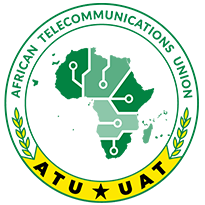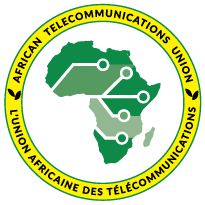The African Union Commission, the Internet Society, and the African Telecommunications Union hosted the 1st ‘African Internet Resilience’ webinar series on 1st June 2020. The event aimed at discussing Internet Resilience in Africa in the context of COVID-19 and assessing the impact of the pandemic on livelihoods in the continent as well as the readiness of the continent’s Internet infrastructure to help mitigate those challenges.
The speakers discussed the impact of the changes in the use of the Internet that has occurred in the last few months and its impact on the operations of organizations. Also on the table was how the Internet has allowed business continuity during lockdowns and how different organizations and individuals have used the Internet to ease the disruption of social and economic life.
Speaking during the event, Mr. Eddy Kayihura, CEO, AFRINIC highlighted the fact that there is general increase in internet usage in Africa and emphasized on the need to push for the growth of internet in the continent for Africa to effectively serve the needs of its people.
Mr. Dawit Bekele, Internet Society’s Regional Vice President highlighted how the pandemic has brought out the cracks in our infrastructure and widened the digital gap in Africa with only a small percentage of the African society able to access remote learning and working.
The CEO of Main One, Ms. Funke Opeke speaking on behalf of operators in Africa noted the fact that operators in the continent have experienced an initial high demand for data and digital connectivity given that a good percentage of the formal sector is moving online. She further observed that low demand for voice services has been recorded as a result of loss of income in the informal sector. This is the case even as Africa’s increased traffic was recorded at approximately 15% compared to that of high-income economies, a fact resulting from constraints in network capacity to address increased demand as well as access issues based on coverage and device costs. To close the gap, critical investments is required in the last mile and terrestrial fiber networks.
ATU Secretary General Mr. John Omo recognized and appreciated the changes in policy regulatory perspective undertaken by African States in response to COVID-19. He commended the regulators on the special measures undertaken in granting of additional spectrum at no cost or at reduced cost, the expediting of licensing for new services in order to accelerate coverage in the rural areas and the increased type acceptance/approval in an effort to make the services and equipment readily available in the market especially those that deal with last mile connectivity. He also recognized the efforts regulators are making to work with operators to ensure that tariffs are reduced, efforts made by the national broadcasting houses to facilitate e-learning and the direct support initiatives by regulators to COVID-19 national initiatives.
The question of Africa’s cyber threat vulnerabilities was also noted by Dr. Nnenna Udeka, Member, African Union Commission Cybersecurity Expert Group, who called for Africa to go back and look at ways in which to strengthen our cyber resilience beyond COVID-19.
The forum ultimately suggested that African countries experience the same challenges when it comes to internet connectivity and resilience, therefore posing the need to share best practices and have closer collaborations with all African countries to position the African continent for the development and implementation of effective ICTs.


